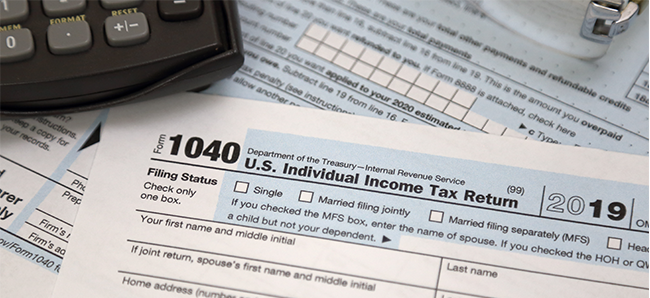U.S. Government Sides with Teva in Skinny Label SCOTUS Fight
“A generic manufacturer’s labeling cannot provide the requisite evidence of specific intent to induce infringement in a case like this one, where the generic manufacturer has carved out the specific indication identified by the brand-name manufacturer as corresponding to the patented method of use that is alleged to be infringed.” – Solicitor General’s brief
The U.S. Solicitor General on Wednesday filed an amicus brief with the United States Supreme Court advising it to grant Teva Pharmaceuticals’ petition for writ of certiorari relating to generic manufacturers’ liability for infringement through the use of “skinny labels” on generic drugs.
The SG’s brief said that the U.S. Court of Appeals for the Federal Circuit (CAFC) got it wrong, and that the decision could upend the careful balance contemplated by the Hatch-Waxman Amendments between incentivizing new brand name drugs and allowing cheaper generics into the market.
Under section viii of the Hatch-Waxman Amendments to the Federal Food, Drug, and Cosmetic Act, generic manufacturers can submit to the Food and Drug Administration (FDA) “labeling for the generic drug that ‘carves out’ from the brand’s approved label the still-patented methods of use.” Teva filed a section viii statement for its generic carvedilol drug in 2007, omitting the portions of the labeling for GlaxoSmithKline’s (GSK’s) branded version of the drug, Coreg, that corresponded to the method of use claimed in its U.S. Patent No. 5,760,069. Thus, the first indication of use on the Coreg labeling, regarding “treatment of mild to severe heart failure,” as well as information such as dosage instructions for the omitted use, was not included on Teva’s label. However, GSK sued Teva in Delaware district court in 2011, alleging that Teva’s marketing
and distribution activities had induced doctors to prescribe generic carvedilol to treat congestive heart failure, thereby infringing the method of use claimed in GSK’s reissued patent, which was granted in 2008.
The Federal Circuit twice decided to vacate post-verdict rulings by the district court granting judgment as a matter of law to Teva. In reversing those rulings, the Federal Circuit agreed with GSK that Teva induced infringement of the reissue patent based on substantial evidence of Teva’s inducing activities supporting the jury’s verdict. Both rulings also featured 30-page dissents from Circuit Judge Sharon Prost, who was Chief Judge of the Federal Circuit when the first reversal was issued in October 2020, who argued that the majority decisions would undermine “skinny label” protections for generic drugmakers under the Hatch-Waxman Act.
“Uncertainty about the section viii pathway is likely to deter generic manufacturers from invoking that mechanism, thereby threatening the availability of lower-cost generic drugs, in contravention of the statutory design,” wrote the SG in its amicus brief.
The question presented by Teva asks the Court: “If a generic drug’s FDA-approved label carves out all of the language that the brand manufacturer has identified as covering its patented uses, can the generic manufacturer be held liable on a theory that its label still intentionally encourages infringement of those carved-out uses?”
But GSK in its reply brief said the question is “blatantly misleading” and presented its own question: “When a generic drug is doubly indicated for a patented use, and there is strong record evidence of intent and inducing conduct, can the generic manufacturer evade liability for induced patent infringement merely because it did not include on its label (i.e. ‘carved out’) one of the two indications corresponding to the patented use?”
While GSK is arguing that the case involves “circumstances highly unlikely to be repeated,” the SG told the Court certiorari should be granted to ensure continued functioning of the system. “The section viii pathway cannot function properly if FDA and generic manufacturers cannot rely on an NDA holder’s representations to the agency regarding which portions of the brand-name drug’s labeling teach patented methods of use,” wrote the government. In the case of Teva’s label at issue, the SG said the CAFC’s decision is “erroneous” and that affirming the ruling will have a broader effect on generic manufacturers’ ability to enter the market:
“A generic manufacturer’s labeling cannot provide the requisite evidence of specific intent to induce infringement in a case like this one, where the generic manufacturer has carved out the specific indication identified by the brand-name manufacturer as corresponding to the patented method of use that is alleged to be infringed.”
The SG further asserted that the Federal Circuit’s reasoning that non-carved-out language on Teva’s label that taught the patented method could be considered as evidence that Teva intended to encourage that use was “inappropriate here.” The SG explained:
“The carved-out labeling did not reflect petitioner’s unencumbered choice, but instead was driven by FDA regulatory requirements and GSK’s own identification of the indication that should be excised…. Whatever inferences might be drawn from a manufacturer’s unilateral choice of labeling that is found to encourage infringing uses, ‘[t]he law simply does not permit an inference of culpable, intentional encouragement from [petitioner’s] label on this record.’”
And despite GSK’s arguments about the case being fact-bound and unusual, “the potential for inducement liability in these circumstances may significantly deter use of the section viii pathway, even if such liability is rarely imposed,” added the SG.
Four other amici have weighed in on the case so far in support of Teva.
Eileen McDermott
Eileen McDermott is the Editor-in-Chief of IPWatchdog.com. Eileen is a veteran IP and legal journalist, and no stranger to the intellectual property world, having held editorial and managerial positions at […see more]







